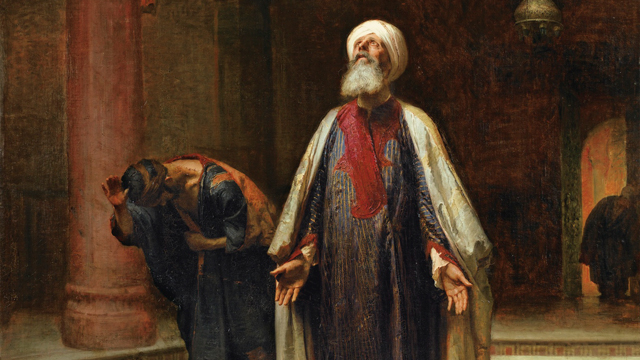by Evropa Soberana
Chapter 1
Geopolitical, anthropological and ethnic context
The Near East or the Levant—what today are Turkey, Lebanon, Syria, Iraq, Israel, Palestine, Jordan and Egypt—has been a very important geostrategic zone of confrontations between the Europe of the forests, the snows, the rivers and the mists, and the deep East of the dry, jealous, sterile and inhospitable spirit of the desert. In this area there have been, from time immemorial, ebbs and flows from both Europe and Asia and Africa, and crystallized in the appearance of the Neolithic and the first civilizations of the world.
Paraphrasing Nietzsche, we would say, ‘if you stare at the desert for a long time, the desert will also stare at you’. If there is a natural selection environment radically different from that of the glaciations, it is undoubtedly the desert: monotonous and infinite environment like the laments of the songs now preached from the minarets of the mosques. Immersed in this type of landscape for a long time, it is easy for a man to have visions and see illusions and distorted reflections; to listen voices that, according to oriental folklore, come from evil spirits and, finally, to lose one’s way and sink into despair and madness, and let your mind take a journey into darkness, from which it will never return.

The deserts are the places where the total absence of the fecundating power of heaven—represented by rain and lightning, and by typically European gods such as Zeus or Jupiter—has propitiated the triumph of the Earth, and therefore the death of Nature and the levelling, the devastation, the equalization of the horizons and the lack of permanence of the same floor that is stepped on. It is totally imprudent to think that all these elements do not leave a deep mark on the idiosyncrasy and collective imagination of a people.
The subject that we treat is revealed as a confrontation that, in last instance, is reduced to an evolutionary insurrection of the East not to disappear in an unequal competition with the European human varieties. In 56 BCE, in a speech entitled De Provinciis Consularibus given in the Senate of Rome, Cicero himself describes the Jews, along with the Syrians as a ‘race born to be a slave’.
Syrians and Jews were ethnic communities in which the Armenid race was strongly represented, and which are encompassed as Semitic cultures. The Semitic waves constituted, for millennia, a source of pain, malaise, violence and tragedy for Europe, from the Carthaginians to the Ottomans. The present book will deal particularly with the Jews, without forgetting other groups that, like the Arabs, Persians and Syrians, made common cause with them on many occasions, including during the rise of Christianity.
Although today they try to unload Europe with an unreal multiculturalism, the daily and historical reality is that the coexistence between different races has only two results: third-worldization and/or balkanization: ethnic conflicts and territorial ruptures. What we are going to see in this book, of course, has nothing of multi-cult and nothing of ‘peaceful coexistence’, since for centuries and centuries the coexistence between Greeks and Jews was marked by great waves of bloody violence. It did not work.
Far, therefore, from the politically correct fantasy of the ‘coexistence of cultures’, we will investigate the beginning of a series of ethnic cleansings throughout the Eastern Mediterranean, which would culminate in the low Roman Empire with eradication, in North Africa and in the Near East, of the Greek and Roman communities and of most of the classical legacy at the hands of the East.